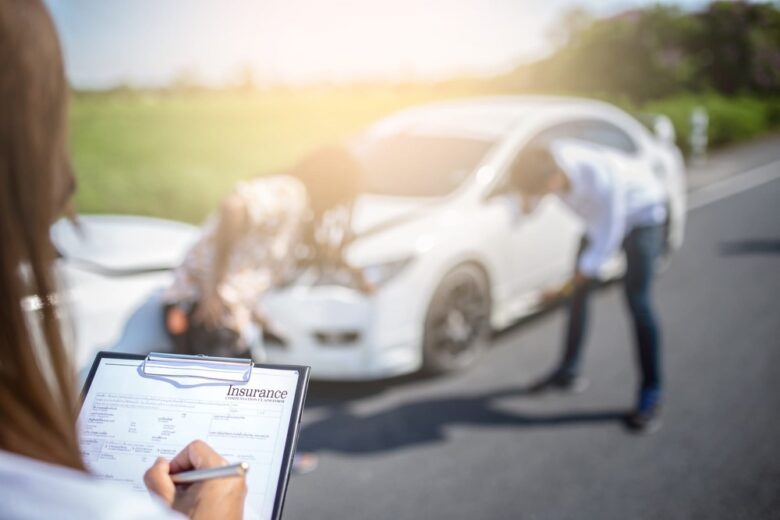Collision coverage is essential for vehicle protection. It covers the cost of car repairs and replacements after a collision, regardless of liability. Understanding collision auto insurance, its coverage, and its benefits is critical to making an informed auto insurance decision.
What is Car Collision Insurance?
Car insurance covers car damage as a result of a collision. This includes collisions with other cars, objects and even stationary objects such as trees or guardrails. Unlike liability coverage, accident coverage only covers the repair or replacement of the vehicle.
Collision Coverage:
Collision coverage pays for the cost of repairing or replacing your car after an accident. This means that if your car hits another vehicle, building, or other object, your collision insurance will cover the cost of repairs. With collision coverage, your car will be replaced for an amount that does not exceed its cash value, minus any deductible (if added).
Car Collision Insurance Benefits:
Peace of mind is a major benefit of collision car insurance. Accidents are stressful and costly, but collision coverage can protect you from the full cost of repair or replacement. This coverage is especially useful for newer or more expensive vehicles due to the high cost of repairs and replacements.
Collision coverage covers accidents for which you were not at fault but would be more expensive to repair. If you drive into a pothole without driving again, collision insurance will cover the cost of repairs. No matter what happens, this coverage will protect you financially.
Deductibles and Collision Insurance:
Collision coverage usually requires a deductible. Higher deductibles generally lower monthly premiums. You should choose a deductible that you can afford in the event of a claim. To maximize collision coverage, you need to balance your deductible with your budget.
Why Collision Insurance is Important?
Owners of loan or lease cars are required to take out collision coverage. To protect their financial interests in the vehicle, lenders and leasing companies often require collision coverage. If your car is totaled in an accident, you may have to pay off your loan or lease without this coverage.
Even if you own your car, accident coverage is a good investment. Collision coverage reduces the cost of repairing or replacing a damaged car. This policy protects you against financial problems after an accident.
Collision Insurance Rate Factors:
There are several things that can affect your collision insurance premium. Because high-end and luxury cars cost more to maintain, their make and model matter. Your rate is based on your driving record and coverage. City residents pay higher premiums due to a higher risk of accidents.
Choose Collision Coverage:
Before purchasing collision coverage, consider your vehicle’s value and financial situation. If your car is older and worth less, you may need to increase your deductible to lower your rates because repairs may be too expensive. Financial accident protection may be stronger for newer or more valuable vehicles with lower deductibles.
To find the best collision insurance coverage and cost, you should compare policies from multiple providers. Reviewing and comparing coverage can help you choose the policy that best suits your needs.
Make a Claim on Your Collision Coverage:
To make the collision insurance claims process smooth after an accident, it’s important that you follow the right steps. First, note the location of the accident and any damage to the car. Call your insurance company as soon as possible to report the claim and provide them with the necessary evidence.
Most likely, your insurance company will send an estimator to look at the damage and find out how much it will cost to repair it. If your insurance company agrees to the claim, they will pay for the repair themselves or reimburse you (less your deductible). It is important to keep all documents and records relating to the repair for your own records and to ensure that you receive the correct amount of your refund.
Conclusion:
Accident coverage, such as collision coverage, is an excellent way to protect your car in the event of an accident. It can help pay for the cost of repairing or replacing your car, no matter what, and is necessary for people taking out a loan or leasing a car. Understanding what collision insurance covers and how it can help you can help you make an informed choice about your car insurance policy and stay safe on the road.
FAQs:
1. What does car accident insurance cover?
Regardless of who is at fault, collision insurance will pay for the cost of repairing or replacing your car. In a single-vehicle accident, this also includes damage from hitting objects, other cars, or other cars. If your car is a total loss, your insurance will pay for the replacement up to a cash amount, less any deductible.
2. If I have liability insurance, do I still need accident insurance?
Yes, even if you have liability insurance, you still need accident insurance. Liability insurance only reimburses the damage you cause to others in an accident. Collision coverage, on the other hand, covers damage to your own car. Collision coverage is a must if you want to protect the financial interests of your car in the event of an accident.
3. How does the deductible change the cost of my accident insurance?
A deductible is the amount you must pay out of pocket before your accident insurance starts paying. If you choose a higher deductible, your monthly premium may be lower. If you opt for a smaller deductible, your monthly premium may be higher. The amount of your deductible affects the total cost of your insurance, so make sure you choose an amount that fits your budget.
4. Is it legally required to take out accident insurance?
No, you are not legally obliged to take out accident insurance. But if you have a loan or lease on your car, the lender or leasing company may have you purchase collision insurance to protect their investment in the car. Even if you own your car outright, collision coverage can help you avoid expensive repairs or the cost of a new car after an accident.
5. How do I make a claim on accident insurance?
To file a collision insurance claim, you must first take photos of the accident scene and any damage to your car. Call your insurance company to file a claim as soon as possible and provide them with the required documentation. An appraiser examines the damage and calculates how much the repair will cost. If your claim is accepted, your insurance company will pay for the repairs themselves or give you a check for the amount you spent (minus your deductible). Please retain all documents and records relating to the repair for your records and reimbursement.



